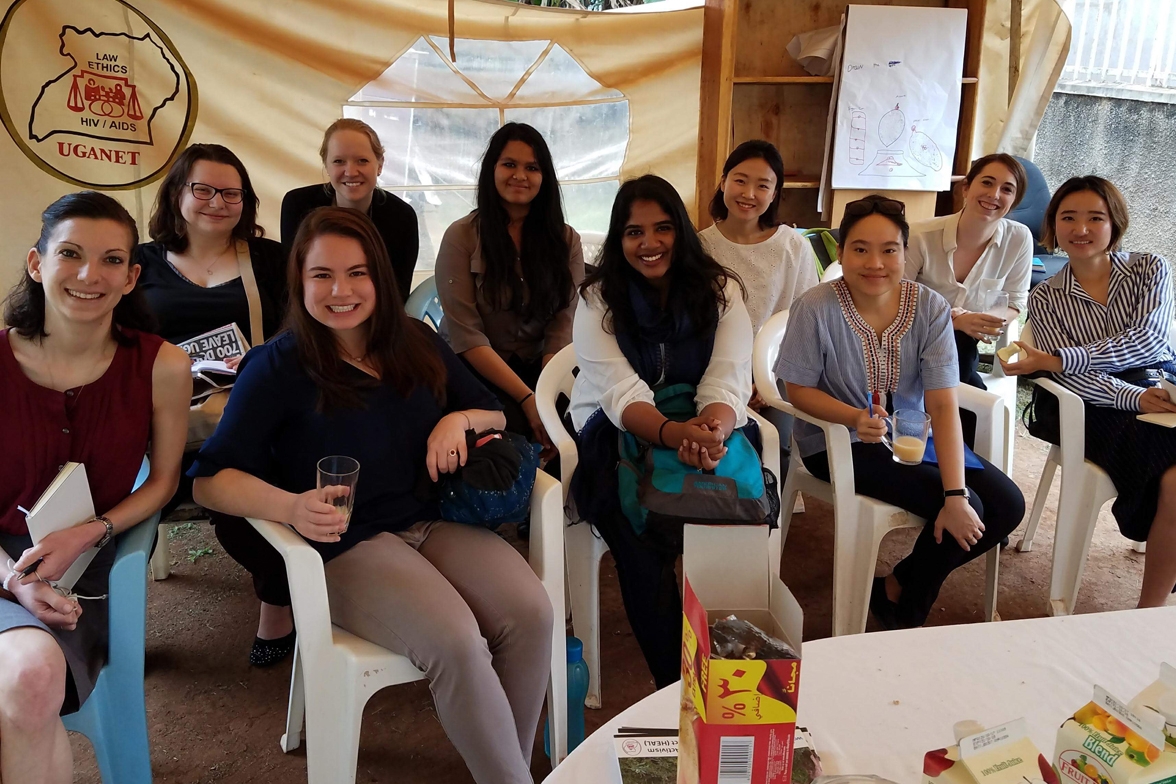Researching the Human Rights of Women Living with HIV/AIDS in Uganda

A group of nine students participated in a ten-day research trip in Uganda for this year’s International Human Rights Clinic, a capstone project under the International Law and Organizations Program. The clinic is a year-long application course designed to teach skills for careers in international human rights as students lead research on a specific topic and publish a report. This year the group focused on the human rights of women living with HIV/AIDS in Uganda and will provide policy recommendations through their report in May 2018.
Students engaged with various stakeholders operating at different levels including international organizations, Ugandan governmental bodies, relevant foreign embassies, regional and local non-governmental organizations, civil society organizations, and the private sector. In Kampala, the group visited institutions responsible for policy making and agenda setting, such as the International Labor Organization, Ugandan AIDS Commission, and Uganda Human Rights Commission. The United States Embassy provided understanding of foreign assistance as well as the Embassy of Norway and Sweden. Students also met with local organizations working in advocacy, reducing stigma, and training of human rights with focus on HIV/AIDS. One such organization was UGANET, which is a grassroots group providing legal assistance in regards to women’s property rights and gender-based violence. Likewise, the Center for Health, Human Rights and Development works with community empowerment and strategic litigation. The One Dollar Initiative and the Federation of Ugandan Employees work to address HIV/AIDS stigma in the workplace.
Part of this year’s study is a rural-urban comparison, so the group divided into two teams to observe the cities of Rakai and Fort Portal. The Rakai District was where the first recorded case of HIV/AIDS occurred and still has a high prevalence of the disease. With the assistance of Rakai Health Sciences Program, students observed health clinics, engaged with the local police, and learned about commercial sex workers. In Fort Portal the team visited the Manna Rescue Home, a shelter for HIV positive children that places special focus on integration into society as adults. They met with the Ugandan Human Rights Commission in Fort Portal that investigates human rights abuses, provides legal services, and evaluates governmental policies. Additionally, the team observed a pop-up health clinic organized by FUEL Uganda to gain valuable insight from their HIV/AIDS education program, outreach methods, and treatment procedures.
The field research helped students gain a comprehensive understanding of both the successes and challenges of combating HIV/AIDS in Uganda as well as the implications of the various human rights initiatives in place. The students will analyze the research and publish relevant policy recommendations to improve the human rights conditions of women living with HIV/AIDS.